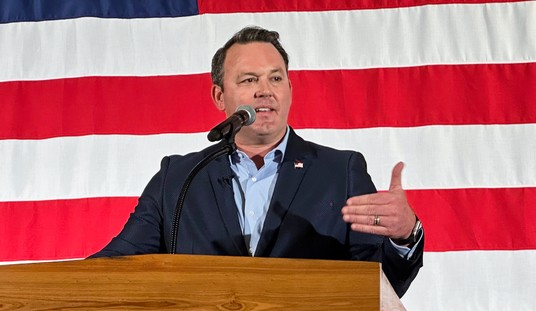South Africa is plagued with astonishing levels of crime and poverty, its peoples segregated and suspicious of one another. But the new Clint Eastwood-directed movie Invictus says that’s all okay, because the country’s rugby team won a few games in 1995.
Coming off last winter’s excellent and far more challenging Gran Torino, Invictus is shockingly pedestrian and cliché-ridden. Its level of racial naivety makes it a sort of Driving Mr. Damon, with Morgan Freeman accepting a demotion from his usual roles as God or the president of the United States. This time he merely plays a saint — Nelson Mandela.
Although in one scene we are told that Mandela is a flesh-and-blood human being with family troubles, the rest of the movie shows the man working himself to exhaustion, protesting that he is overpaid, putting himself in physical peril for the sake of his country, forgiving sinners, and generally glowing from the halo over his head. As played by Morgan Freeman with maximum beatitude, he’s one of many reasons why this movie is a colossal bore.
Another is Matt Damon who, as the blond captain of the South African national rugby team the Springboks, is a total blank except that he really wants to win. His team plays so badly in the early stages of the movie that he orders everyone to drink the worst beer he can find — to symbolize the bitter taste of defeat. If putting together a championship-caliber team were that easy, wouldn’t the Detroit Lions simply order in a few cases of Pabst?
Despite Eastwood’s eagerness to portray Mandela as a sort of Jesus with a funny accent, the president seems to be less interested in his country’s nightmare problems than in spending vast amounts of time obsessing over the fortunes of the nearly all-white rugby team as South Africa prepares to host rugby’s World Cup.
And what is rugby? You got me. It is to football what cricket is to baseball, I suppose. There are teams of brawny men, there is a ball, and you’re not allowed to throw the ball forward. That’s all the movie has to say about the rules. Why do most of the players from each of the two rival teams all gather together with arms locked in a circle? It’s a mystery. In a movie that contains several scenes of Mandela poring over the World Cup rugby bracket, it’s a crazy omission.
As the Springboks advance through the tournament, there is never the slightest suspense about where the movie is going or about the point it is trying to make. The point is that through sport, everyone (or at least everyone in South Africa) can put differences aside and join together as one. The idea is laughable; South Africa, many years after the end of apartheid, remains a seething, dangerous place. The result of a rugby tournament meant nothing.
And from the point of view of the black South Africans in the movie, the team is probably racist (it has only one black player). Early in Invictus (the title comes from a classic English poem about never giving up) the national sports council, which is all or mostly black, has to be dissuaded by Mandela from disbanding the Springboks and throwing away its green and gold emblems as symbols of apartheid. Mandela tells them to forgive. Mighty nice of him, but you can’t make people love a sports team.
Mandela shows up at the World Cup final dressed in the team colors, and we’re meant to believe that the black citizens became overnight fans of a squad that they had mostly associated with the brutality of the police and the military. After the agony of apartheid, would they really be that eager to throw their allegiance to a white team playing a white sport? (The black members of the president’s security detail confess that they don’t understand the rules of rugby.)
Not content to make the absurd case that rugby healed a nation, the movie stretches to the point that Mandela seems to be the main reason the team wins. He calls in the rugby captain, Francois Pienaar, for a meeting that makes the front pages of the nation’s newspapers. Pienaar exits the meeting with a stunned look on his face because Mandela has just hinted that his team should try to win the World Cup. As if that’ll make all the difference.
Bizarre as it is to watch such an experienced filmmaker waste gobs of screen time on a sport you probably don’t care about or understand, it’s even more bizarre for Eastwood to think he has something interesting to say. “Hurrah for togetherness, boo to racists” is about it.









Join the conversation as a VIP Member